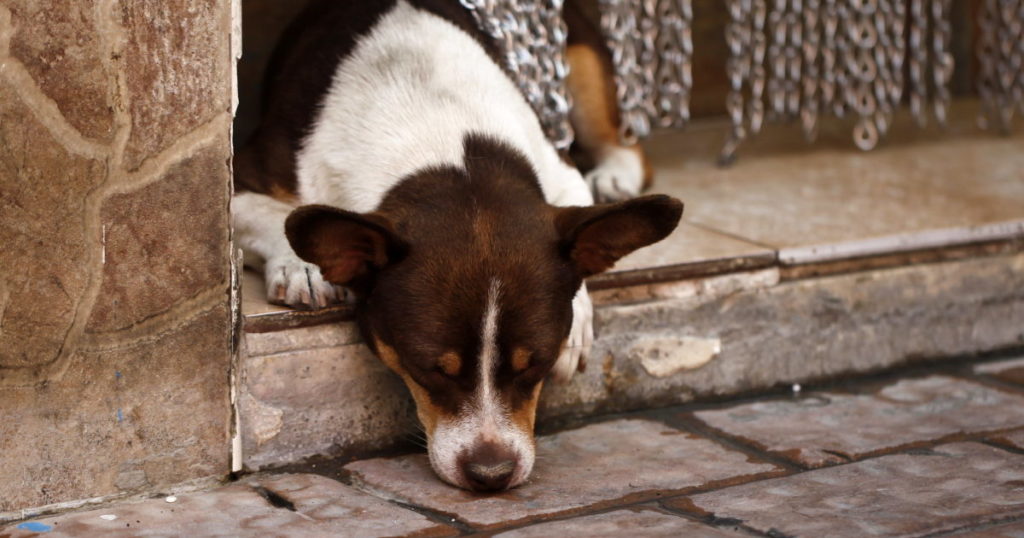
What does he have to be true to, asked Anthony Lane about 007 in his New Yorker review of the latest Bond movie, No Time to Die. Bond, played a last time by Daniel Craig, is tired, grumpy, and disenchanted. Indeed, what could inspire a nearly forgotten, undervalued, overlooked, has-been to loyalty? Lane always leaves me with questions, not the kind that result from confusion but those that arise pleasantly, muddying the waters of existence just enough to make peering into them a fun puzzle. I put the magazine down to take the dogs for their early morning walk, but the question stayed at the back of my mind.
Coming home that morning, I battled between prudence and adventure: take the safe route along city streets or risk this winding lane where a couple of old farmsteads still sit on the ridge above the river, leaning into the hillside behind them as a tired old farmer might lean against a wall. Which path did I prefer? A Spanish saying might have guided me: curarse en salud, meaning play it safe. Did I do that? No. I took the winding back road though I knew a dog awaited at the bend, chained to an outbuilding, with the house, still standing but apparently empty, just steps away across the lane.
My dogs and I went along quietly, they on their forked leash sniffing eagerly. We came in sight of the small collection of buildings, the lane passing through them. There was the dog, curled up sleeping under the overhang of the shed roof, the rusty brown of the chain visible.
Softly, softly we approached. My dogs seemed not to notice the other dog. Soon, though, this other dog would become aware of us and within seconds would be on its feet and snarling from the end of its chain. I wanted to be safely past when that happened, not tugging on my dogs to make them follow me, despite the challenge issued in that other dog’s hoarse bark. Yes, I knew the sound of the bark and the dog’s furious red eyes, and I knew the length of the chain that would keep it from reaching us. I knew the dog’s tremendous energy. Yet I had chosen this route despite the confrontation that awaited and the frisson of danger. I wondered why. And why was I so sure the dog would react to us this morning exactly as it had that other morning when we’d chanced this way? David Hume established that reasoning based on induction is fallacious, and the fact that something has happened in the past—including, as in his famous example, the rising of the sun—is no guarantee it will continue to happen.
But react the dog did. Just as I was pondering whether to risk awakening it with a rush past to the far side or to continue our stealthy approach, it shifted, took in our presence, and was on its feet, all in the blink of an angry eye. I sprang forward to make a run for it, my dogs barreling ahead of me, entirely unconcerned about the enraged dog now barking crazily at the affront of our passing through his home.
Safely past, I slowed, and my dogs did too, with no backward glance. Why, I wondered, did the dog defend its territory so heartily? Cold hard bed, short chain, no companion. What was there in that combination to inspire loyalty? Or need defending? No one wanted to usurp its place, certainly not my dogs. Compared to that sorry animal, they had a million blessings, and they didn’t even glance at the chained dog or bother to bark. On an early morning walk, scents abounding, a river rolling by, and the clouds dissipating, my dogs knew life was good. What did that other dog know? It’s a question to ponder, and we may venture that way again, in hopes of finding out. Of course, Hume may prove so right, and the dog may not even lift its head. I believe, however, that it will continue to defend its home fiercely because even for a dog, it might be frightening to know you’ve got options and are free to behave in a totally unexpected way. Yes—Hume may prove right, but the surprise might be that the dog wags its tail as we amble past. Now that I wouldn’t want to miss. Strolling by and letting the dogs touch noses (or even myself stroking that shaggy mutt) is even more inspiration for another visit than a heart-pounding dash and a big sigh of relief at the end, when it’s all over.

